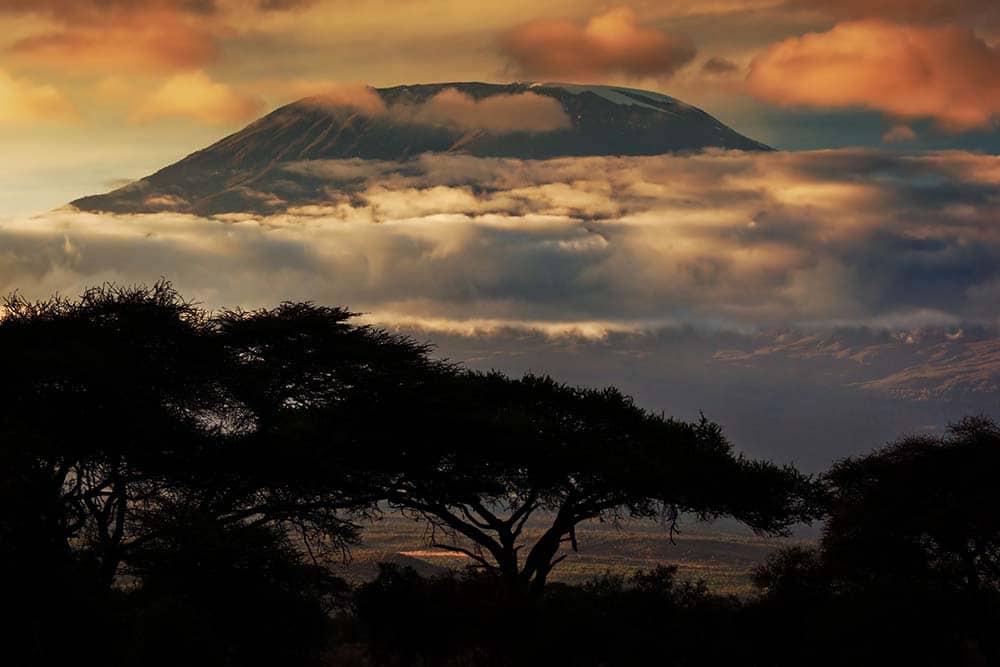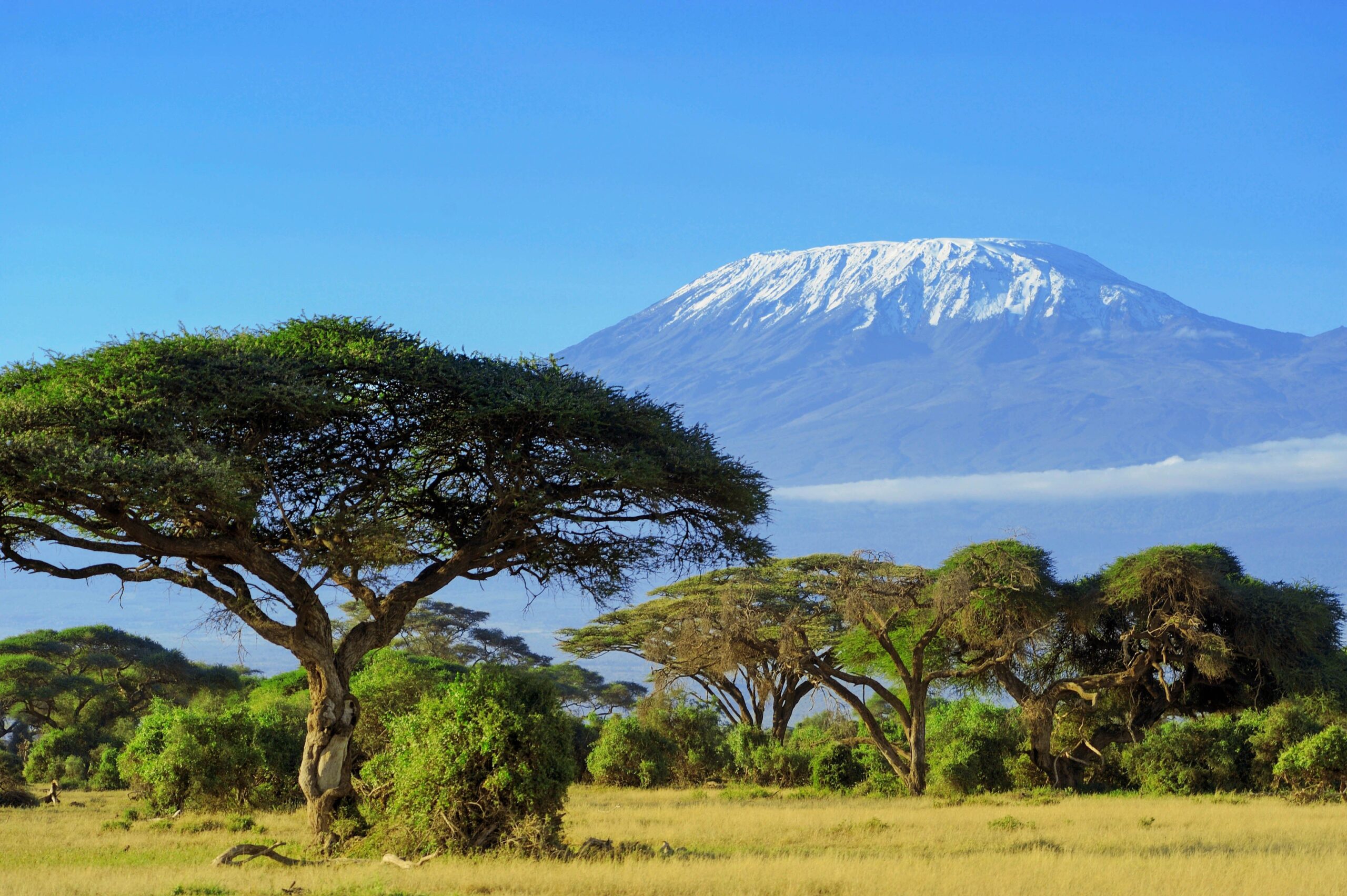Mt. Kilimanjaro Lemosho 7 days


Itinerary for Hiking Mt. Kilimanjaro Via Lemosho Route
Mount Kilimanjaro, the highest peak in Africa, stands at 5,895 meters (19,341 feet) above sea level. Located in Tanzania, this iconic mountain is renowned for its stunning, snow-capped summit and pristine, diverse ecosystems, ranging from lush rainforests to alpine deserts. Hiking Kilimanjaro offers adventurers a challenging yet rewarding experience, as they ascend through ever-changing landscapes to reach the "Roof of Africa". The Lemosho Route is one of the most scenic and least crowded routes to the summit of Mount Kilimanjaro. It offers excellent acclimatization opportunities, a variety of landscapes, and a higher success rate due to its longer itinerary. Below is a detailed 8-day itinerary for the Lemosho Route.
The Lemosho Route is one of the most scenic and less crowded routes on Kilimanjaro, offering a variety of landscapes and excellent acclimatization. The 7-day itinerary is ideal for those with some trekking experience.
Good to Know:
-
Country: Tanzania
-
Visa Requirements: Yes
-
Languages spoken: English & Swahili
-
Per Person: $3,500 - $5,000
-
Important to have Visa & Travel Insurance
-
A knowledgeable guide will greatly enhance your experience.
-
Trekking Clothes, Personal Gear, Poles and Other Important Hiking equipment is necessary.
Day 1: Londorossi Gate to Mti Mkubwa (Big Tree) Camp
Elevation: 2,100m to 2,650m
Distance: 6 km
Hiking Time: 3-4 hours
Habitat: Rainforest
Description: After registration at Londorossi Gate, drive to the trailhead and begin trekking through the lush rainforest. Keep an eye out for monkeys and other wildlife. Arrive at Mti Mkubwa Camp for your first night.
Day 2: Mti Mkubwa to Shira 1 Camp
Elevation: 2,650m to 3,610m
Distance: 8 km
Hiking Time: 5-6 hours
Habitat: Moorland
Description: Continue through the forest before entering the moorland zone, with panoramic views. Reach Shira 1 Camp on the Shira Plateau.
Day 3: Shira 1 Camp to Shira 2 Camp
Elevation: 3,610m to 3,850m
Distance: 7 km
Hiking Time: 3-4 hours
Habitat: Moorland
Description: Trek across the Shira Plateau, a high-altitude desert, with views of Kibo Peak in the distance. Arrive at Shira 2 Camp by early afternoon, allowing time for acclimatization.
Day 4: Shira 2 to Barranco Camp via Lava Tower
Elevation: 3,850m to 4,600m (Lava Tower) to 3,900m (Barranco Camp)
Distance: 10 km
Hiking Time: 7-8 hours
Habitat: Semi-desert
Description: Ascend to Lava Tower for acclimatization at 4,600m before descending into the Barranco Valley. The day involves a significant altitude gain and loss, aiding acclimatization.
Day 5: Barranco Camp to Karanga Camp
Elevation: 3,900m to 4,035m
Distance: 6 km
Hiking Time: 4-5 hours
Habitat: Alpine Desert
Description: Climb the Barranco Wall, a steep and challenging section, before traversing ridges and valleys to reach Karanga Camp.
Day 6: Karanga Camp to Barafu Camp
Elevation: 4,035m to 4,673m
Distance: 4 km
Hiking Time: 3-4 hours
Habitat: Alpine Desert
Description: A short but steep ascent to Barafu Camp, where you prepare for the summit attempt. Arrive early to rest before the midnight departure.
Day 7: Barafu Camp to Uhuru Peak to Mweka Camp
Elevation: 4,673m to 5,895m (Uhuru Peak) to 3,067m (Mweka Camp)
Distance: 19 km
Hiking Time: 12-15 hours
Habitat: Arctic Zone to Rainforest
Description: Start the summit attempt around midnight, reaching Stella Point at sunrise and continuing to Uhuru Peak, the highest point in Africa. After celebrating, descend to Barafu for a short rest, then continue to Mweka Camp.
Day 8: Mweka Camp to Mweka Gate
Elevation: 3,067m to 1,640m
Distance: 10 km
Hiking Time: 3-4 hours
Habitat: Rainforest
Description: A final descent through the rainforest brings you to Mweka Gate, where you’ll receive your certificates before transferring back to Moshi.


What’s Included:
Accommodation:
Pre- and Post-Trek Hotel Nights: Usually 2 nights in Moshi or Arusha (one night before the trek and one night after).
Camping Accommodation: Tents and sleeping pads during the trek.
Meals:
All Meals on the Mountain: Breakfast, lunch, and dinner during the trek.
Drinking Water: Treated water provided throughout the trek.
Guides and Staff:
Professional Mountain Guides: Certified and experienced Kilimanjaro guides.
Porters: Porters to carry your gear and set up camp.
Cooks: A cook to prepare meals on the mountain.
Park Fees:
Kilimanjaro National Park Fees: Entrance, camping, and rescue fees.
Group Equipment:
Camping Gear: High-quality tents, dining tents, tables, chairs, and cooking equipment.
First Aid Kit: A basic first aid kit carried by the guide.
Transportation:
Transfers: Round-trip transfers between your hotel and the Kilimanjaro trailhead.
Summit Certificate:
Climbing Certificate: Awarded to climbers who reach Stella Point, Gilman’s Point, or Uhuru Peak.
Oxygen Supply:
Oxygen: Emergency oxygen is typically carried by the guides.
What’s Not Included:
Personal Gear:
Clothing: Personal trekking gear such as jackets, base layers, waterproof gear, gloves, hats, etc.
Sleeping Bag: You may need to bring or rent your own sleeping bag (recommended to be rated for -10°C/14°F or lower).
Trekking Poles: Personal trekking poles, if needed.
Travel Insurance:
Comprehensive Travel Insurance: Including coverage for high-altitude trekking, medical emergencies, trip cancellation, and evacuation.
Visa and Vaccinations:
Tanzanian Visa: The cost of obtaining a visa for Tanzania.
Vaccinations: Any required vaccinations (e.g., yellow fever) and personal medications.
Meals Not on the Mountain:
Meals in Moshi/Arusha: Before and after the trek (unless specifically included in your package).
Tips for Guides, Porters, and Cook:
Gratuities: Tipping is customary and expected, typically ranging from $250 to $400 per climber for the entire crew.
Personal Expenses:
Souvenirs, Snacks, and Drinks: Any personal purchases, additional snacks, drinks (soft drinks, alcohol), and souvenirs.
